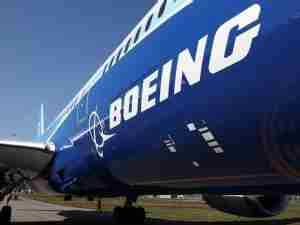United’s $14 Billion Order Signals Airbus Gain on Boeing Domain
By: | Sep 06 2017 at 02:45 PM | Air Cargo
United Airlines is expanding an earlier order for Airbus SE’s A350 jetliner, handing the European planemaker a critical win in its battle with Boeing Co. for supremacy in the wide-body jet market.
The deal for 45 of the A350-900 planes, which is valued at $14 billion before customary discounts, replaces an earlier order for 35 of Airbus’s bigger and pricier A350-1000s. Earlier this year, United had indefinitely deferred the first four aircraft as it re-evaluated fleet plans. Deliveries of the new Airbus jetliners won’t begin until 2022, when United’s oldest Boeing 777 jets will start to reach retirement age.
The transaction establishes Airbus’s marquee wide-body jet as a possible replacement for Boeing’s top-selling 777 aircraft at United, which was the launch customer for the twin-aisle jet in 1995. The U.S. planemaker hasn’t yet landed any North American customers for the 777X, an upgraded model due to debut at decade’s end.
“The A350-900 is an outstanding aircraft with the size and range to be an excellent replacement for our 777-200ERs,” United Chief Financial Officer Andrew Levy said in a note to employees Wednesday. The Chicago-based carrier has a “substantial” number of options it could exercise to add additional A350 aircraft, he noted.
“So, if we decide to make this the sole replacement for the 777 fleet, we will be able to do so on similar, very attractive, economic terms,” Levy said of the Airbus plane.
Fleet Strategy
United’s fleet strategy, spearheaded by Levy, signals the tough competition that Airbus poses to Chicago-based Boeing in its wide-body stronghold. The 777 has long been the planemaker’s second-largest source of profit behind the single-aisle 737, dominating sales until Airbus responded with the next-generation A350.
“The twin-aisle long-range aircraft is fast turning into the same commodity that the single-aisle market has been for years,” aerospace consultant Richard Aboulafia said in an interview.
That may be a factor behind Boeing’s expansion into aftermarket parts sales and its campaign to tamp down costs, Aboulafia said.
Boeing declined to comment.
Retaining United Continental Holdings Inc. as a wide-body customer is crucial for Toulouse, France-based Airbus. Delta Air Lines Inc. said in May it would defer 10 orders for the A350 and instead take a stretched version of Airbus’s A320 single-aisle workhorse. American Airlines Group Inc. has postponed deliveries of 22 of the wide-body Airbus jets.
Capacity Squeeze
While the United deal would lift Airbus’s backlog for the 325-seat A350-900 to 673 aircraft, it also narrows the order book for the 366-seat -1000 to 177, based on the planemaker’s latest order and delivery tallies. That underscores the pressure on bigger wide-body jets as carriers around the world rein in capacity expansion to ease pressure on fares.
United’s fleet strategy has been in flux since Levy joined the company last year along with President Scott Kirby, who had helped negotiate a purchase of the Airbus jetliner while at US Airways, which later merged with American Airlines. The original deal predates the carrier’s 2010 merger with Continental Airlines and marked United’s first order for an Airbus wide-body.
The carrier still plans to add the first 787-10, Boeing’s longest Dreamliner model, to its fleet next year and take deliveries of Boeing 777-300ERs to replace the 747 jumbo fleet it is retiring by year-end. And United continues to scout the secondary market for used jets, Levy said.
The Airbus A350-1000 was too close in size to the largest 777 models, one reason United opted for the smaller model, Levy said.
“Importantly, we have the ability to swap some of the A350-900 aircraft into the larger -1000 version if our views on aircraft size change over time,” he added.











